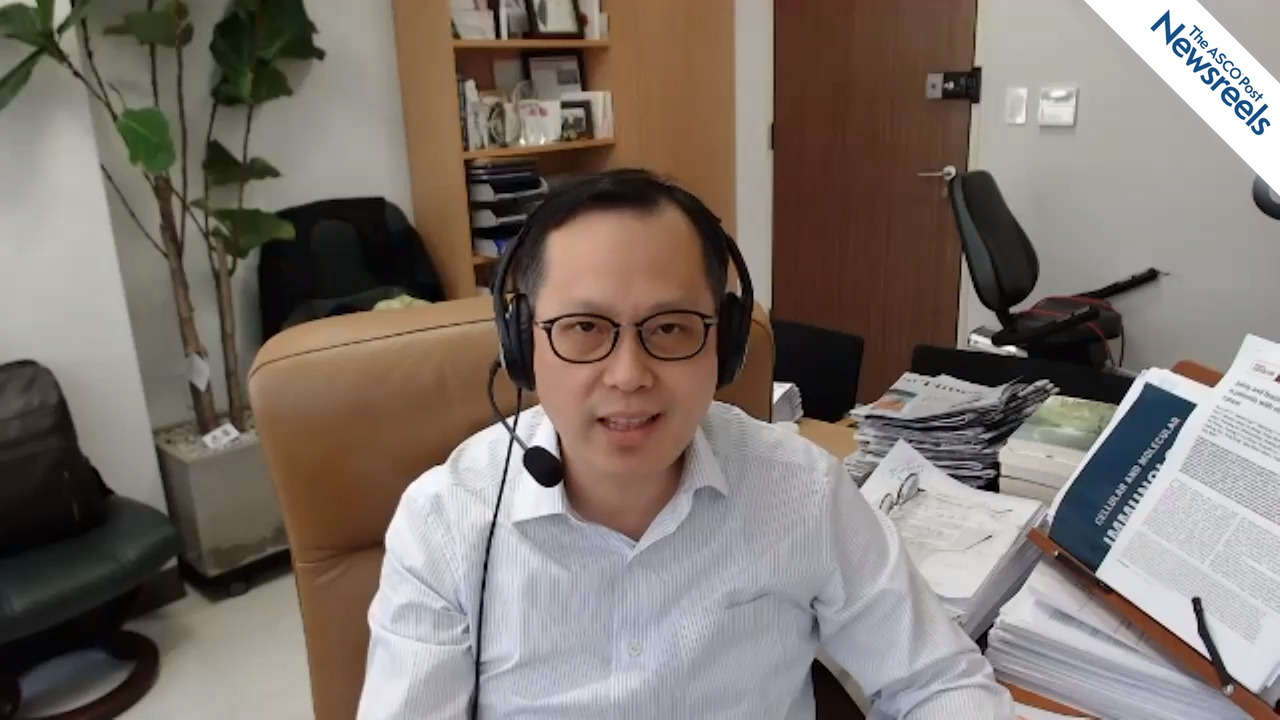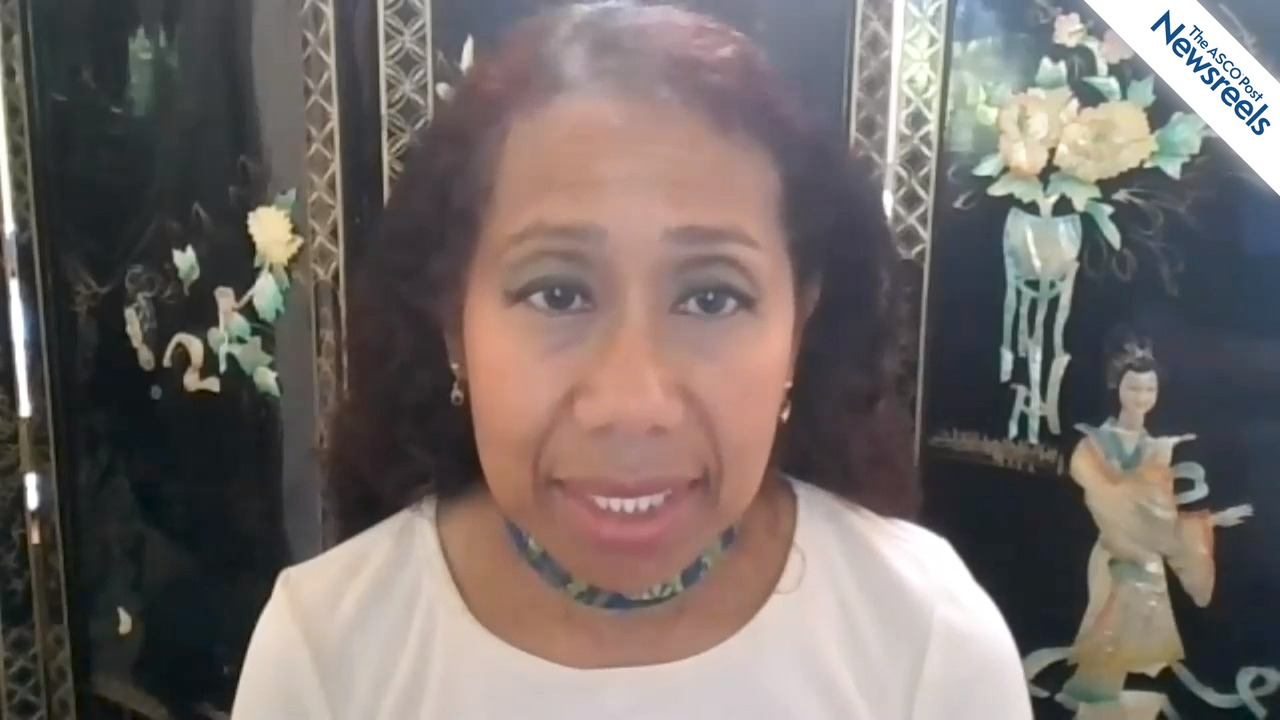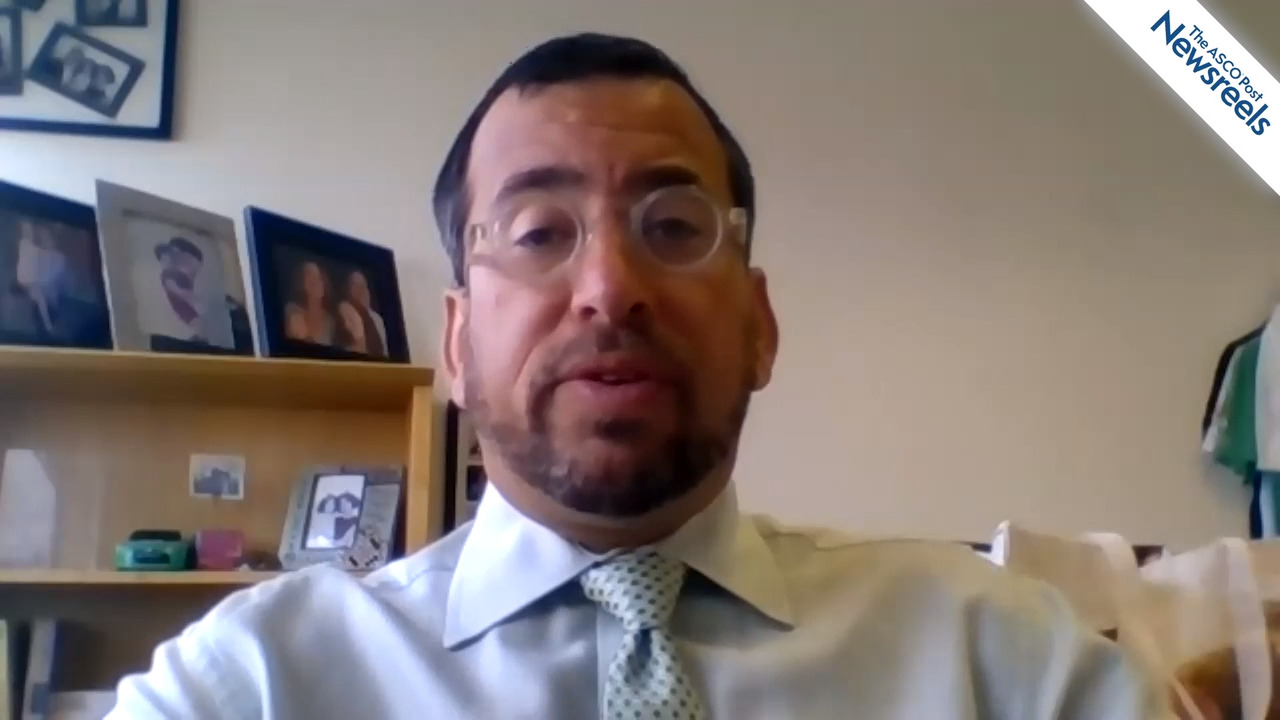Andrew X. Zhu, MD, PhD, on Hepatocellular Carcinoma: Atezolizumab Combined With Bevacizumab
AACR Virtual Annual Meeting 2020 I
Andrew X. Zhu, MD, PhD, of Massachusetts General Hospital, discusses an exploratory analysis seeking to identify tumor-based molecular biomarkers that may be associated with clinical response or resistance to the combination treatment of atezolizumab and bevacizumab in patients with advanced hepatocellular carcinoma (Abstract CT044).
The ASCO Post Staff
Byoung Chul Cho, MD, PhD, of Yonsei Cancer Center and Severance Hospital, discusses the STK11 and KEAP1 mutations in non–small cell lung cancers, and their relationship to the efficacy of pembrolizumab monotherapy vs platinum-based chemotherapy as first-line treatment for PD-L1–positive advanced disease (Abstract CT084).
The ASCO Post Staff
Kimlin T. Ashing, PhD, of City of Hope National Medical Center, discusses analyses that showed neighborhoods with lower-income and minority populations had a greater number of tobacco and vape shops, increased use of electronic nicotine delivery systems, and lower-priced tobacco products. This information may help public health efforts address the high rates of vaping among teenagers in these communities (Abstract CT087).
The ASCO Post Staff
Steven J. O’Day, MD, of the John Wayne Cancer Institute, discusses phase II results for the combination of pembrolizumab with a novel innate immune activator, Imprime PGG, as second-line treatment for patients with metastatic triple-negative breast cancer ( Abstract CT073).
The ASCO Post Staff
Nickolas Papadopoulos, PhD, of Johns Hopkins Medicine, discusses a first-of-its-kind prospective study that evaluated a screening blood test in more than 10,000 older women with no history of cancer. The test, called DETECT-A, identified 10 different cancer types, 65% of which were early-stage disease (Abstract CT022).
The ASCO Post Staff
Edward B. Garon, MD, of the University of California, Los Angeles David Geffen School of Medicine, discusses KEYNOTE-189 trial findings that showed adding pembrolizumab to pemetrexed plus platinum—which previously was found to improve overall and progression-free survival—is also safe and has manageable toxicity in long-term use for patients with metastatic nonsquamous non–small cell lung cancer (Abstract CT085).





